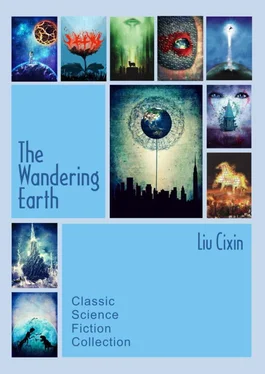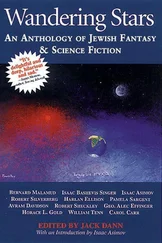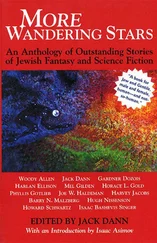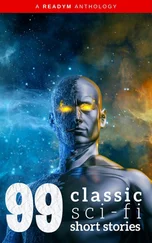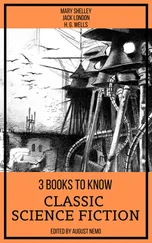“That’s the absolutely terrible part!” she shouted. “We are a third of a mile underground, just like the meat stuffing in a pie. First we’ll be roasted and then we’ll be vaporized!”
For a moment a cold shiver ran down my entire body.
Ling continued. “But it won’t be like that on the surface. There everything will evaporate in the blink of an eye. The people on the surface will be like soap bubbles, gone in a pop.” She smiled again. “And because of that, I think it would be better to be on the surface when the helium flash hits.”
I couldn’t say why, but I did not go with her. Instead, she left with Tung and I never saw them again.
The helium flash did not happen. The Earth rushed past the perihelion and began its sixth journey to the aphelion, allowing humankind’s taut nerves to relax. Once we passed the perihelion, the Asian Earth Engines faced in the direction of Earth’s orbit. With the Earth no longer in rotation, this meant that, save for the occasional minor positional adjustments, Asia’s Earth Engines were shutdown completely. We sailed into a quiet and very long night.
The American Earth Engines, on the other hand, were operating at full capacity with that continental plate now acting as the superstructure for the jets of our planet-rocket. Because the Western Hemisphere also faced the Sun, the temperatures there were truly horrific; horrific enough to burn all their vegetation to ash.
The Earth’s orbitally-assisted acceleration carried on like this, year after year. Every time the Earth sped toward the aphelion, humanity’s collective nerves relaxed in tune with the Earth’s increasing distance from the Sun; every new year, with the Earth falling toward the Sun, they would grow tauter with each passing day. And, every time the Earth came to the perihelion, rumors would begin to fly, proclaiming that this time the helium flash would happen. The rumors would persist until the Earth again sped toward the aphelion; then the people’s fears would begin to gradually diminish, together with the shrinking of the Sun in the sky.
But the next wave of fear would already be brewing.
It was as if humanity’s spirits were caught in a cosmic swing. Or perhaps it would be better to say that we were playing a cosmic game of Russian Roulette; the journey to the aphelion and back to the perihelion was like the turning of the chamber, and passing the perihelion was just like pulling the trigger! Every time the trigger was pulled our nerves would be more frayed than the last. We passed our youth under the shadow of this oscillating terror.
Actually, when one really thought about it, the Earth never left the blast radius of the helium flash. Even at the aphelion, the only difference would have been that the Earth would have been slowly liquefied instead of being vaporized by the explosion; and that end would have been worse than what would have happened at the perihelion.
The Exodial Age soon became an age of catastrophes.
The first came when the acceleration produced by the Earth Engines and the change of orbital trajectory disturbed the equilibrium of Earth’s iron-nickel core. The effect crossed the Gutenberg-Discontinuity and spread into the planet’s mantle. All across the world, geothermal energy escaped and a cataclysmic rampage of volcanic eruptions followed in its wake. From the sixth orbit on, the subterranean cities were thrown into mortal peril as magma seepage became all too frequent and catastrophic events.
On the day it happened, I was just on my way home from school when I heard the blare of the municipality’s emergency broadcast.
“Alert! All citizens of City F112! The city’s northern protective barrier has been breached by crustal stress and magma has entered the city! Magma has entered the city! At this moment magma is flowing into Block Four! The Underway exits are blocked off. All citizens are to gather in the central plaza and evacuate from there via elevator. Attention, the evacuation will commence according to Article Five of the Exigency Law! I repeat: The evacuation will commence according to Article Five of the Exigency Law!”
Looking around the labyrinth of passages, our subterranean city seemed eerily normal. But I was aware of the immediate danger; there were only two Underways to the outside and one was blocked since last year due to necessary reinforcement work on the protective barrier. If the other way was also blocked, we could only escape by elevator through the vertical shafts and the carrying capacity of the elevators was very limited. It would take very long indeed to evacuate all 360,000 inhabitants that way. There was no need, however, for it to turn into a struggle for survival; the Exigency Laws of the Unity Government ensured a well-ordered escape.
It brought to mind an ethical question in the olden days; it had gone, ‘You are in a flood and you can only save one person. Do you rescue your father or your son?’ In the eyes of our age, that question made absolutely no sense.
When I arrived in the central plaza, I saw the other inhabitants already lining up in long rows according to their age. Closest to the elevator doors stood the robot nurses holding the infants, then came the kindergarteners, followed by the children in primary school and so on; my place in the ranks was still rather close to the front.
At the time my father was on duty in Low-Earth-Orbit, leaving only my mother and myself in the city, and I could not find her. Running along the crowded ranks, I looked for her, but was soon stopped by soldiers. I knew that she would be in the last group, all the way at the end. Our city was first and foremost a school city, with only a few families, and she had already calculated where her age peers would be.
The queue moved at an exasperatingly slow pace. It took three long hours before it was my turn, but I felt no relief as I boarded the elevator. I knew that there were still 20,000 college students between my mother and her survival; I could already smell the strong odor of sulfur.
Two and a half hours after I had made it to the surface, magma swallowed the entire subterranean city a third of a mile below me. Imagining my mother’s final moments felt like twisting a knife in my heart. She, along with 18,000 others that could not be pulled out, must have seen the magma surge into the central plaza. The power had already failed then, leaving the horrible crimson glow of the magma as the only remaining light. The white dome high over the square would have slowly blackened under the heat and those trapped would have surely perished. They must have never felt the magma actually engulf them; the scorching air, hotter than 2,000-degrees, would have taken their lives long before.
But life had to go on, and even in our cruel and terrible reality, the enticing sparks of love could flash at any moment. During the twelfth journey to the aphelion, the Unity Government, in an attempt to ease humanity’s anxiety, unexpectedly revived the Olympic Games 200 years after they had been suspended. I was going to participate, having been selected for the motorized sled rally team. The competition would involve racing my motorized sled from Shanghai, across the frozen Pacific, and then on to New York.
As soon as the starting shot rang out, more than a hundred sleds shot off across the frozen ocean, blazing across the ice at 120 miles per hour. During the first leg there was always a competitor in my sights. Two days later, however, all others, whether they were ahead or behind me, had disappeared over the horizon.
The light of the Earth Engines had disappeared together with my fellow racers. By this time I had come upon Earth’s darkest corner. Here all things stretched into infinity; above, the starlit sky, and below, the frozen ocean. It almost seemed as if they reached the ends of the universe; or perhaps I had reached the ends of the universe itself.
Читать дальше
